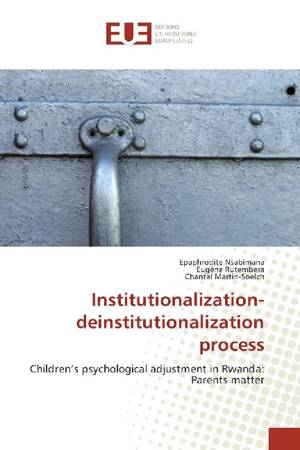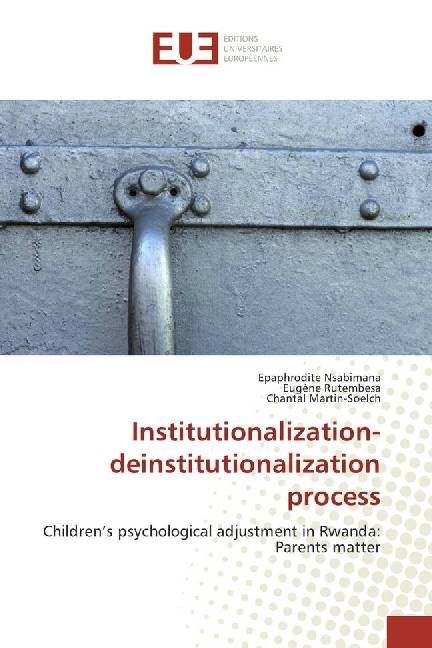
- Afhalen na 1 uur in een winkel met voorraad
- Gratis thuislevering in België vanaf € 30
- Ruim aanbod met 7 miljoen producten
- Afhalen na 1 uur in een winkel met voorraad
- Gratis thuislevering in België vanaf € 30
- Ruim aanbod met 7 miljoen producten
Zoeken
Institutionalization-deinstitutionalization process
Children's psychological adjustment in Rwanda: Parents matter
Epaphrodite Nsabimana, Eugène Rutembesa, Chantal Martin-Soelch
Paperback | Engels
€ 68,95
+ 137 punten
Omschrijving
This book aimed at (1) exploring children's perceptions on institutionalization process; (2) investigating the influence of biological parental living status on institutionalized children's psychological adjustment; and (3) evaluating the effectiveness of deinstitutionalization in Rwanda. With a prospective longitudinal comparative design, focus group discussions and self-report questionnaires were used to collect respectively qualitative and quantitative data from 177 children aged 9 to 16 from 6 orphanages and 5 primary schools in Rwanda. Unexpectedly children living in institution in Rwanda have more impairment in psychopathological symptoms when they have living parents. They considered institutionalization as an orphanization process. After deinstitutionalization, the improvement was reported in attachment while no change was observed in externalizing behavior or self-esteem; internalizing behavior worsened among de-institutionalized children. This should be considered to develop specific interventions for children and considered in deciding to place or not a child in an institution.
Specificaties
Betrokkenen
- Auteur(s):
- Uitgeverij:
Inhoud
- Aantal bladzijden:
- 224
- Taal:
- Engels
Eigenschappen
- Productcode (EAN):
- 9783639653380
- Verschijningsdatum:
- 24/01/2017
- Uitvoering:
- Paperback
- Formaat:
- Trade paperback (VS)
- Afmetingen:
- 152 mm x 229 mm
- Gewicht:
- 335 g

Alleen bij Standaard Boekhandel
+ 137 punten op je klantenkaart van Standaard Boekhandel
Beoordelingen
We publiceren alleen reviews die voldoen aan de voorwaarden voor reviews. Bekijk onze voorwaarden voor reviews.











